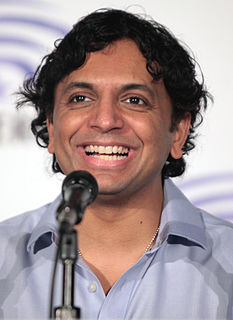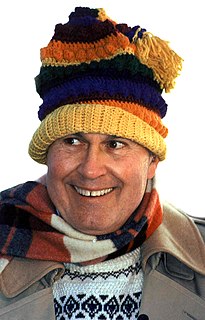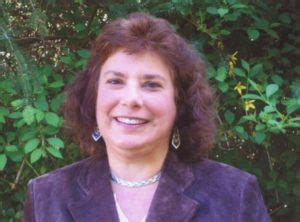A Quote by Katie Nolan
My grandmother is 82, and some days she doesn't even put her teeth in.
Quote Topics
Related Quotes
I heard a story about a woman who grew up in Texas. When she was having trouble in her life, she would visit her grandmother, who lived nearby and always had a kind word and some wisdom to pass on. One day she was complaining to her grandmother about some situation and her grandmother just turned to her, smiled sadly, and said, "Sometimes, darlin', you've just got to rise above yourself in this life." I've remembered that wise advice many times as I've faced trouble in my life.
so my grandmother was not without humanity. and if she wore cocktail dresses when she labored in the garden, they were cocktail dresses she no longer intended to wear to cocktail parties. even in her rose garden she did not want to appear underdressed. if the dresses got too dirty from gardening, she threw them out. when my mother suggested to her that she might have them cleaned, my grandmother said, "what? and have those people at the cleaners what i was doing in a dress to make it that dirty?" from my grandmother i learned that logic is relative.
My grandparents were classic Indian grandparents. My grandmother would put so much powder on her face that it was like a Kabuki play and she'd come down the stairs. I was like 8 or 9 years old. My grandfather apparently had no teeth because he would take out his teeth and put them in a glass, and then he would try to scare me with it. I started to try to scare them when I was a little older.
It's right around this time that her Grandmother Hall dies. And Eleanor Roosevelt is responsible for making all the funeral arrangements. And there are a couple of things that she really understands, as she contemplates her grandmother's life and makes the funeral arrangements. One, she's really talented, an organizational woman. She knows how to do things. She begins to compare her life to her grandmother's life. And it's very clear to her that being a devoted wife and a devoted mother is not enough.
She sighed. Loudly. "Physical appearance is not what is important." Yeah right. Tell that to any girl who hasn't bothered to put on a presentable shirt or fix her hair because she's only running into the grocery store to get a quart of milk for her grandmother, and who does she see tending the 7-ITEMS-OR-LESS cash register but the guy of her dreams, except she can't even say hi—much less try to develop a meaningful relationship—since she looks like the poster child for the terminally geeky.
Hazel has to realize that her mom was wrong when she said, “I won’t be a mother anymore.” The truth is, after Hazel dies (assuming she dies), her mom will still be her mom, just as my grandmother is still my grandmother even though she has died. As long as either person is still alive, that relationship survives. (It changes, but it survives.)
I was raised by a single mom who had to put herself through school while looking after two kids. And she worked hard every day and made a lot of sacrifices to make sure we got everything we needed. My grandmother, she started off as a secretary in a bank. She never got a college education, even though she was smart as a whip. And she worked her way up to become a vice president of a local bank, but she hit the glass ceiling. She trained people who would end up becoming her bosses during the course of her career.
I asked my grandmother how a Hungarian Jewish person can experience being Jewish. My grandmother answered was the only choice was to "keep quiet." I can understand her because she was a Holocaust survivor, and for her survival, she had to keep quiet. But I didn't obey my grandmother when I was a child, and in this case, I don't obey her either.
I think her Grandmother Hall gave her a great sense of family love, and reassurance. Her grandmother did love her, like her father, unconditionally. And despite the order and the discipline - and home at certain hours and out at certain hours and reading at certain hours - there was a surprising amount of freedom. Eleanor Roosevelt talks about how the happiest moments of her days were when she would take a book out of the library, which wasn't censored.
I’ve never cheated on a lover. I’m faithful, always. But the war comes before anyone’s feelings. Every time.” Wow. Battle before love. Without a doubt, he was the most unromantic male she’d ever met. Even more so than her great-grandfather, who had laughingly burned her great-grandmother to death after she’d given birth to Gwen’s grandmother.































